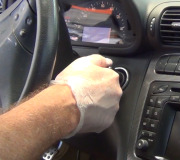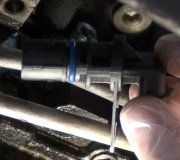You need to start a new question specific to your vehicle. This one is four years old and shows up on our list as having already received a reply. Unlike other sites where anyone can add a reply, this was a conversation between two people. None of the other experts are going to see your addition or have a chance to reply. That won't get you the help you need.
When you post your question, PLEASE list the engine size, mileage, and transmission type. That helps us find the correct wiring diagrams, and make judgments as to most common suspects and likely fixes. Also be sure to describe all the symptoms and related history leading up to the problem.
To answer your question so far, I can't improve on Saturntech9's reply, except the term "alternator" was copyrighted by Chrysler in the early '60s. In spite of the terminology, your generator is the likely suspect given the lack of test results to analyze. You should have seen the red "Battery" warning light on the dash. If the battery did indeed run down while you were driving, charging it at a slow rate for an hour or two will allow you to start the engine and drive a short distance to a repair shop to have the charging system tested. You can start the test by measuring the battery voltage while the engine is running. It must be between 13.75 and 14.75 volts. If it is low, suspect the generator or voltage regulator. If it is okay, that only means it is okay to do the rest of the tests, but that requires a professional load tester.
You also could simply have a bad battery. Measure its voltage with the engine off. If it's good and fully-charged, it will read 12.6 volts. If it's good but run down, it will be closer to 12.2 volts. If you find around 11 volts or less, it has a shorted cell and must be replaced.
Sunday, September 17th, 2017 AT 4:05 PM



